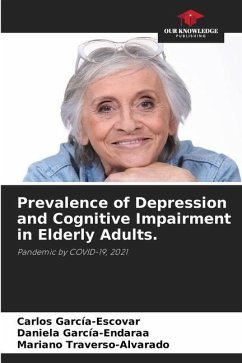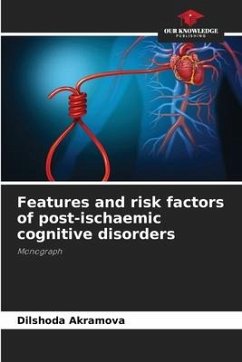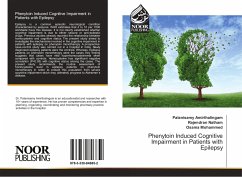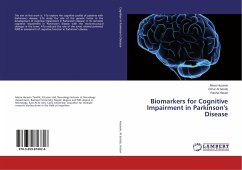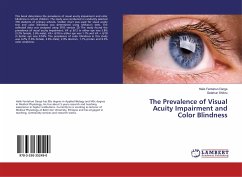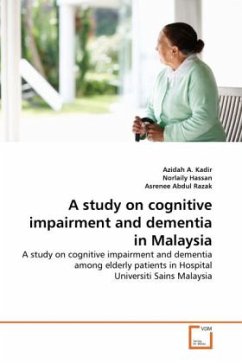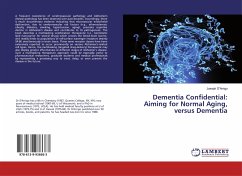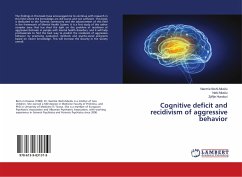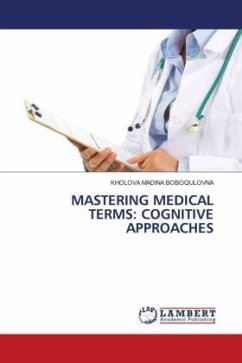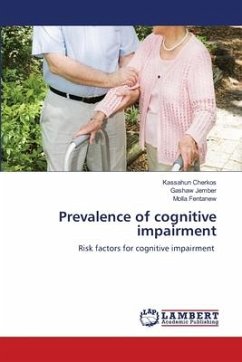
Prevalence of cognitive impairment
Risk factors for cognitive impairment
Versandkostenfrei!
Versandfertig in 6-10 Tagen
29,99 €
inkl. MwSt.

PAYBACK Punkte
15 °P sammeln!
The prevalence of cognitive impairment after stroke is high worldwide, ranging from 11.6% to 68.2% in various hospital-based studies. Deficits in cognitive function are among the more serious stroke sequelae, delaying and frequently jeopardizing rehabilitation efforts. Post-stroke cognitive impairment (PSCI) is associated with impaired activities of daily living, which may lead to increased use of healthcare services, decreased capacity for independent living, and decreased functional performance. Many factors contribute to cognitive impairment It is preferable that healthcare providers and ca...
The prevalence of cognitive impairment after stroke is high worldwide, ranging from 11.6% to 68.2% in various hospital-based studies. Deficits in cognitive function are among the more serious stroke sequelae, delaying and frequently jeopardizing rehabilitation efforts. Post-stroke cognitive impairment (PSCI) is associated with impaired activities of daily living, which may lead to increased use of healthcare services, decreased capacity for independent living, and decreased functional performance. Many factors contribute to cognitive impairment It is preferable that healthcare providers and caregivers focus their attention on the elderly, hypertensive patients with acute stroke and dominant hemisphere lesion who are later admitted to the hospital, and non-educated stroke survivors. According to the findings of this study, they were more likely to develop.



